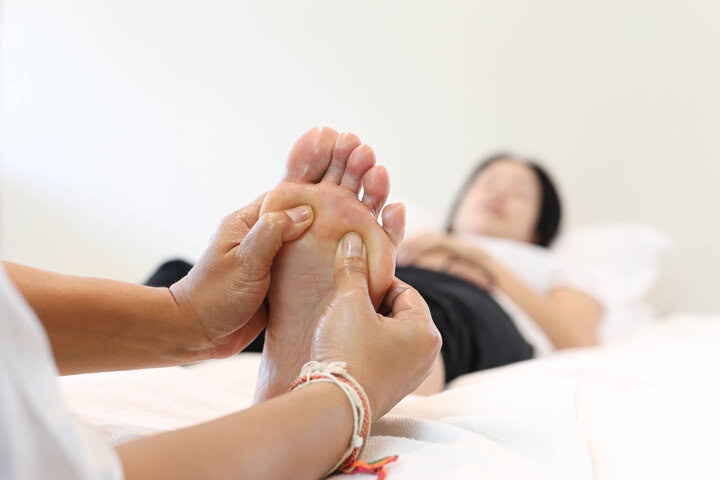

 31/07/2025 17:20:22
31/07/2025 17:20:22
Many people, unfamiliar with Asian massage techniques, see the benefits of foot massage as being confined to the feet alone. However, the ancient Chinese concept of reflexology may have been the first exploration of the link between nerve endings in different parts of the body.
The Chinese discovered that applying careful pressure to specific areas of the feet could provide healthy stimulation to various organs and areas of the body, including the kidneys, heart, liver, and various muscle groups.
Thailand has a long history of sharing cultural aspects with the Chinese, and by studying Chinese reflexology, and combining it with Japanese Shiatsu massage, Indian Ayurvedic yoga, and Chinese Tuina massage, they created a technique that was an improvement over all existing foot massages.
People have enjoyed the benefits of Thai foot massage for over 2,000 years. It's said that the secrets of the Thai massage techniques were held and shared by the Buddhist monks in residence at the Thai Royal Palace through the ages.
Thai foot massage offers many benefits to the feet and body. However, we’ll focus on the most comprehensive benefits. These benefits include:
A foot massage therapist may ask you about any problem areas of the body that they should address during the foot massage. Typically, the massage starts with warmup twists of the feet to loosen and warm up the feet’s muscles and tendons.
People undergoing a Thai foot massage should expect to experience a variety of massage techniques once the feet have sufficiently warmed up. These techniques provide stimulation and health benefits to as much of the feet and body as possible. The techniques include:
With the person lying on their back, the therapist holds the toes in one hand and rubs the length of the arch from the ball of the foot to the heel with the fingers of the other hand.
Heel squeezes are used to release tension in the foot. With the person lying on their back, the therapist holds the toes in one hand and the back of the heel in the other hand. They squeeze and release repeatedly while gently increasing the pressure and range of motion.
Toe bends can increase the range of motion and flexibility of the foot. With the person lying on their back, the therapist holds the heel in one hand and uses the other hand to bend the toes back and forth while gently increasing the pressure and range of motion.
Foot spreads help people relax their feet and allow them to return to their natural width. The therapists hold the sides of the foot and gently pull outward on them. They simply repeat this motion for a few minutes.
You’ll see this common technique used in foot massages performed on other areas of the body as well. With the person lying face down, the massage therapist holds the top of the foot in one hand and uses their knuckles, thumb or fist to massage the bottom of the fleshy areas of the foot from the heel to the ball of the foot using medium pressure.
Reflexology utilizes acupressure to treat different areas of the body by touching nerve pressure points in the foot. With the person lying on their back, the therapist supports the foot in one hand while the thumb alternately presses and releases the entire length of the instep, from the ball of the foot to the heel. The person may feel a tingling sensation in other parts of the body that are stimulated through the foot.
Health Land offers the benefits of authentic Thai foot massages at our eight locations in Bangkok, two locations in Pattaya and one location in Chiang Mai. All Health Land locations across Thailand offer the benefits of Thai foot massages. Book an appointment at the Health Land nearest you to enjoy a foot massage at our spa today.

Share With :